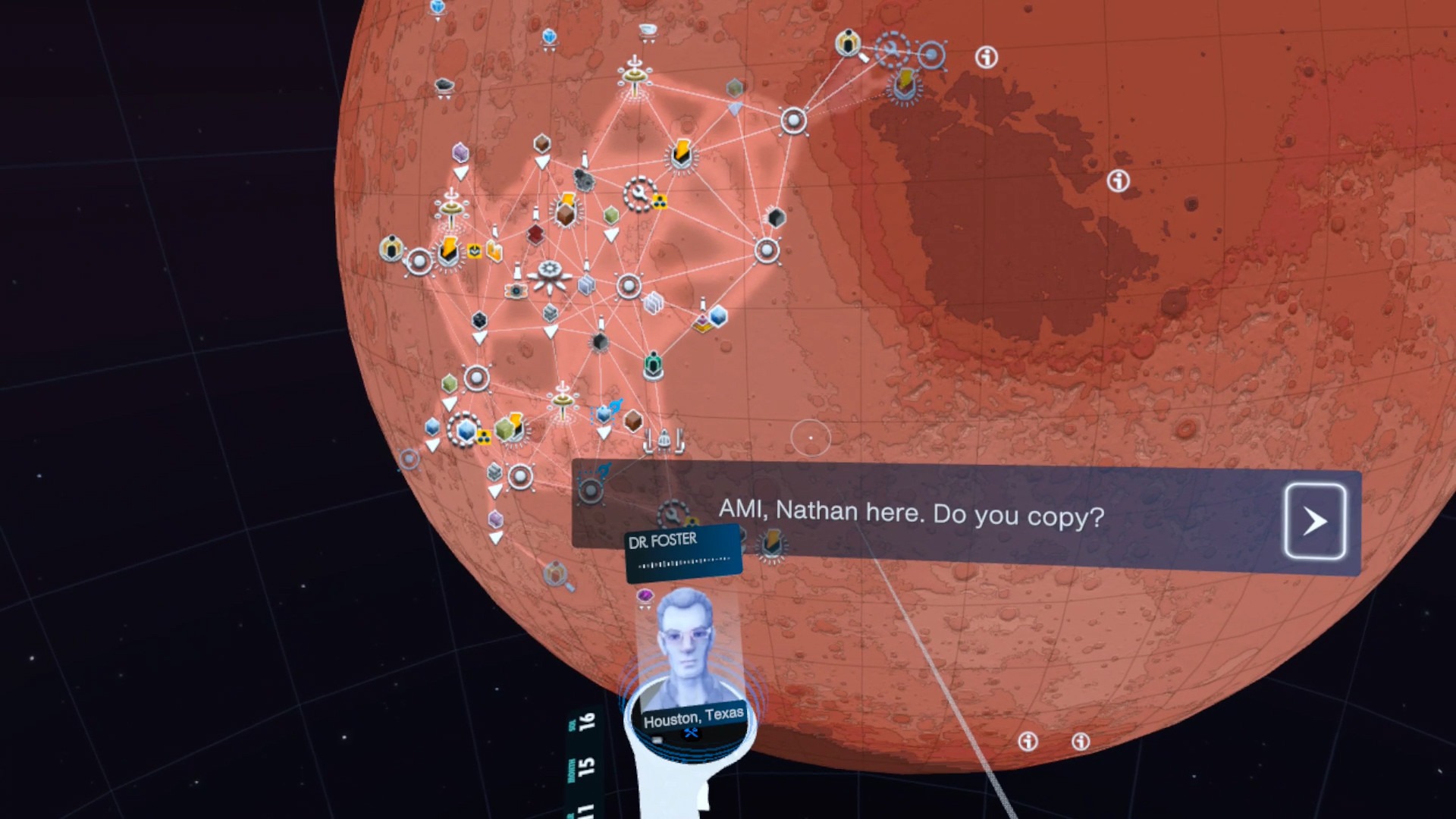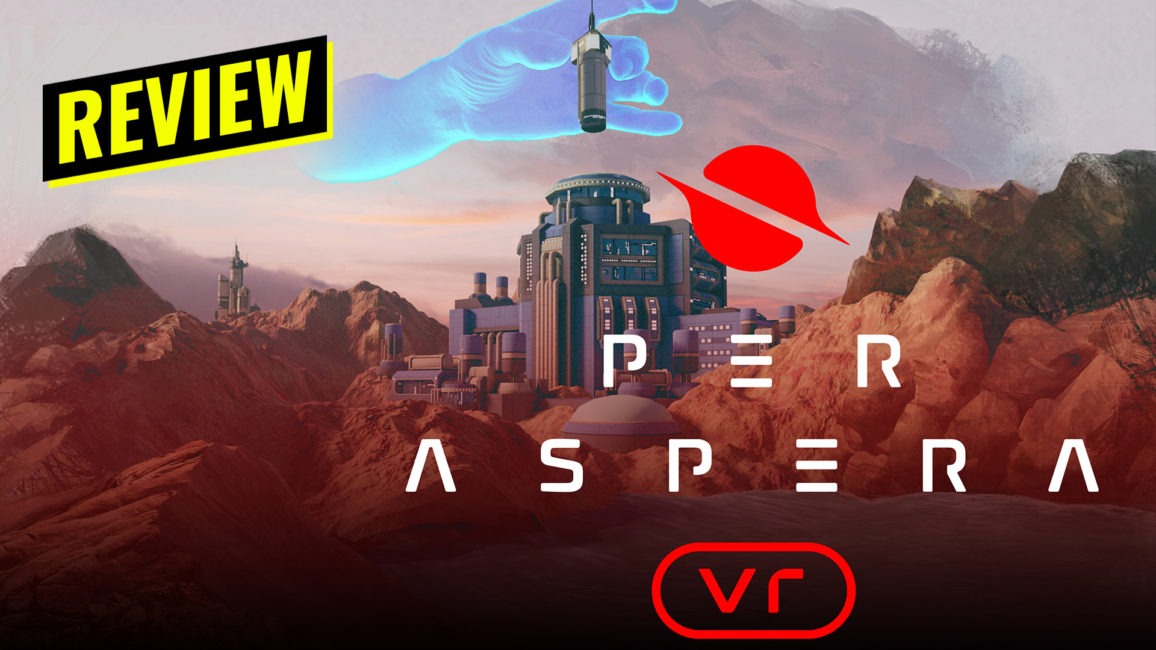Per Aspera is a city builder that has you colonizing Mars, and it’s a good one at that. When it launched in 2020 it climbed to the top of my “off-world colony builders” list by providing a satisfying loop and a great voice cast featuring Laila Berzins, Troy Baker, and Phil LaMarr. It was always a slow moving game, but as a time killer mixed with maybe doing something else between phases, it provided a unique, sometimes mysterious experience. For better or worse, that experience is carried over in full to Per Aspera VR on the Meta Quest 2 in. While the game’s mechanics, presentation, and loop are all present and accounted for, the slow pace and long stretches of downtime may not be the best fit for VR.

The set up here is pretty cool. You play as an AI named Ami (played by Laila Berzins) who is sent to Mars ahead of humanity to begin terraforming the planet and prepare it for colonization. Nathan Foster is your human handler, and played by Troy Baker. The conversations Ami and Foster have are compelling, as you must make decisions based on Ami’s programming while also building out her personality into an autonomous AI. You’ll also come across the wreckage of the various rovers NASA has sent up to Mars over the years. This small detail almost makes Mars feel familiar, despite no one ever stepping foot on the planet. All of this story and narrative is present in Per Aspera VR and is just as compelling here as it was on a desktop monitor.
The gameplay maps really well to the Meta Quest 2 controllers. The controllers provide a near-mouse level of precision and I never had an issue placing buildings or moving the camera. There are plenty of tool tips to give you all the nitty-gritty info you need to make the right decisions. It also has many different levels of zoom, allowing you to get up close and personal with your colony, while quickly zooming out to get a bird’s eye view of your whole operation. My only UI complaint is the need to frequently open a detailed resource menu on your left hand, and dialogue choices appearing far below the field of view, requiring you to look straight down at the floor to see your choices. Otherwise the game is quite immersive and really makes you feel like your an AI overseeing an entire planet covered in resource collectors and spaceports.
The deal breaker, at least me we, is the relatively slow pace of Per Aspera. The beginning portions of the game are exceptionally slow and the in-game speed controls can only do so much. I found myself playing almost exclusivity at the maximum 8x speed setting and I found that to be too slow most of the time. When you’re inside the VR headset the only thing you can pay attention to is the game. This means I found myself sitting there twiddling my virtual thumbs more often than I’d like. If I was sitting in front of a monitor I could be watch a video on my second screen, stand up and walk around, or any other variety of extracurricular activity while waiting for my scanners to find more resources, my research projects to complete, and new buildings to construct

This also feeds into the Meta Quest 2’s mediocre battery life. Typically one sits down to play a city builder or RTS for several hours at a time, that’s just the nature of the genre. But this is at odds with the Quest’s ever draining battery and general comfort issues. Thankfully Per Aspera VR can be played in a sitting position, so you’ll only have to put up with comfort of the headset and the limited battery life. For me, however, this doesn’t fit with how I like to play strategy games. I typically like to commit most of a day to digging in and getting some city building done, so having to “jack out” every few hours because of battery and body fatigue doesn’t really appeal to me. I’d be much for interested in a faster-paced, shorter session RTS experience rather than the slow burn that is Per Aspera.
So where do we land on this? All in a all Per Aspera VR is Per Aspera in VR, with everything that experience carries with it. It runs well, looks good, and provides the same narrative hooks of the original. Whether or not you like experiencing Per Aspera in VR will very much depend on your personal preference. For me, I prefer a more traditional desktop RTS experience. It may not be as immersive, but it allows me flexibility to fill the gaps when the game’s pace slows down. Overall Per Aspera VR is a successful VR port of the original game, it just may not be the best way to experience this methodical city builder.









